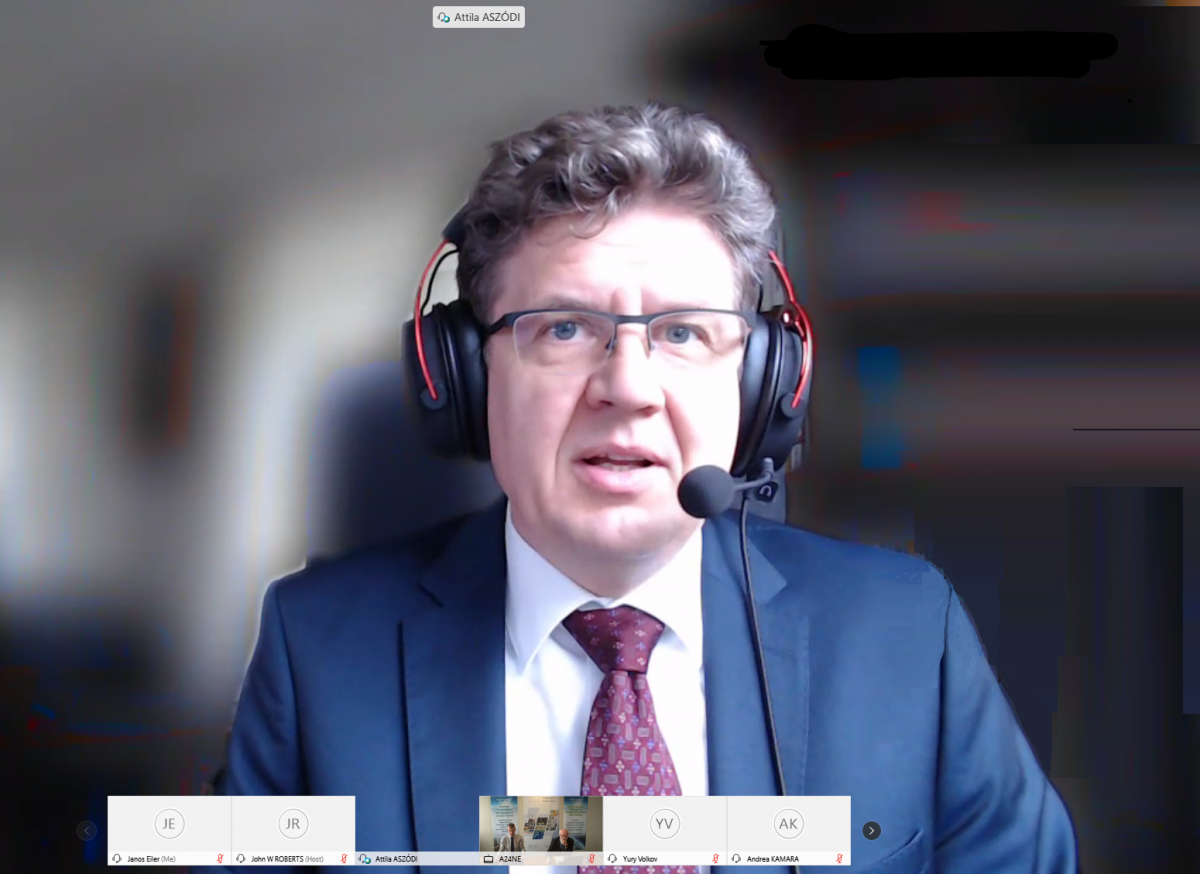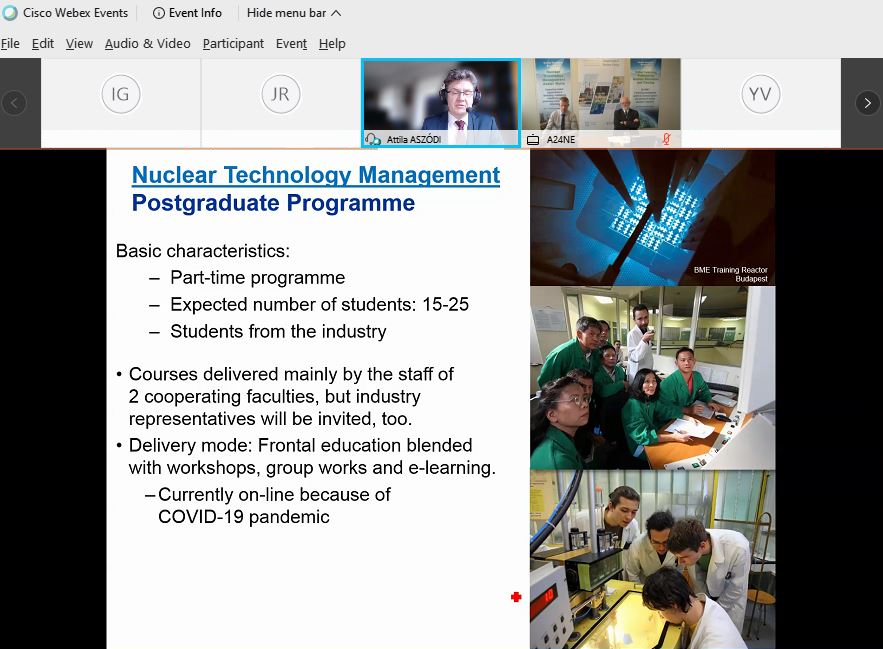News feed
BME earns international recognition in the global elite of nuclear education and training
2020. 10. 26.BME received the endorsement of the International Atomic Energy Agency, which means their programme fully complies with the international recommendations and requirements.
“To support the long term growth of the nuclear sector, it is essential to train leaders who not only have up-to-date knowledge in nuclear sciences but also have advanced management and leadership skills,” stressed Attila Aszódi, professor of the Institute of Nuclear Techniques (NTI) at the Faculty of Natural Sciences (TTK) of the BME, about the importance of the new programme in his presentation at an online seminar (webinar) organised by the International Atomic Energy Agency (IAEA) on October 15 2020. He added that the development of atomic energy and nuclear technology as well as the achievement of strategic objectives related to atomic energy generates a constantly growing demand for highly qualified nuclear specialists with technical and leadership skills. The areas where up-to-date knowledge is crucial include the operation of the power plant units in Paks, the replacement of senior staff approaching their retirement, the licensing, construction and future commissioning of the new units in Paks, the development of Hungary’s energy system, the design, implementation and operation of nuclear research facilities and the support of related service activities. In response to these pressing labour market needs, BME launched two specialist engineering programmes at the BME NTI this September.

The professor said that the reactor technology postgraduate programme has been regularly announced by the BME over the past five decades and has been completed by nearly all the current leaders of the nuclear sector. This September, a new, internationally recognised programme was added to BME’s training portfolio: The NTI and several departments of the BME’s Faculty of Economic and Social Sciences (GTK) now jointly offer a new, four-semester postgraduate nuclear technology management programme training specialist engineers and other specialists.
This programme is designed to provide further training for professionals who already work in the nuclear industry but wish to improve their technology and/or management/leadership skills or for people who are contemplating a career in the nuclear sector.
The nuclear technology management programme of the BME, which offers a combination of nuclear technology and management/leadership skills, was developed in full compliance with the recommendations of the International Atomic Energy Agency in 2019 and 2020. There are only a handful of other universities in the world that have implemented the IAEA’s programme and BME is the seventh university whose programme has been endorsed by the IAEA, which improves the national and international reputation of degrees obtained here.
This programme offers a favourable combination of the BME’s reactor technology engineering programme, which has a long history, and the popular management training programme, the MBA. Technical and nuclear subjects are taught by the NTI’s senior lecturers while managerial subjects are taught by lecturers of the GTK, which has a long tradition in MBA training, and a number of experienced industry professionals are also involved. In the study period, students have technology and management classes on Friday and Saturday respectively and also process case studies demonstrating the use of management skills in nuclear industry practice. Students who wish to obtain an MBA degree later will be able to have some of the credits collected in their nuclear technology management programme recognised in a future MBA programme. Every semester, students have 144 contact lessons in total and improve their technical and atomic energy knowledge and learn management, leadership and corporate competencies through numerous project assignments, home assignments, workplace exercises, teamwork and other innovative teaching solutions.

The professor also said during the IAEA webinar that a total of 16 students had enrolled in BME’s first nuclear technology management programme. As many of these students work in extremely important organisations which are critical for the national economy (e.g. nuclear plant, nuclear safety agency), lessons are held as scheduled in the timetable but remotely so the training is progressing smoothly despite the pandemic situation.
The international audience was interested to hear the presentation of Attila Aszódi and asked many related questions. The webinar also included feedback about nuclear technology management training from John Roberts from the IAEA’s nuclear knowledge management division, Yury Volkov, associate professor at the Russian National Nuclear Research University (MEphI) and Frederik van Niekirk, professor at the North-West University in South Africa.
– GI –
